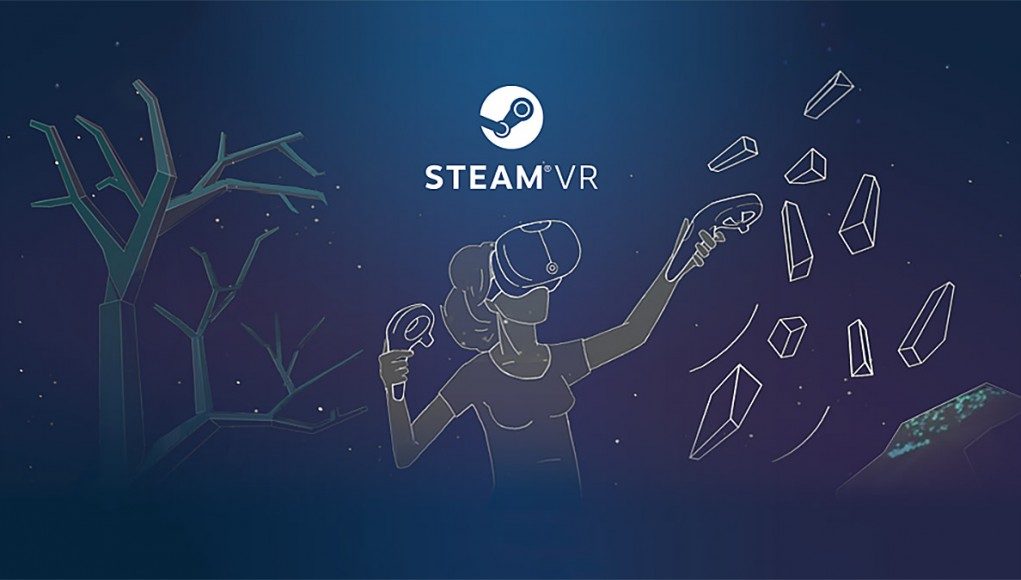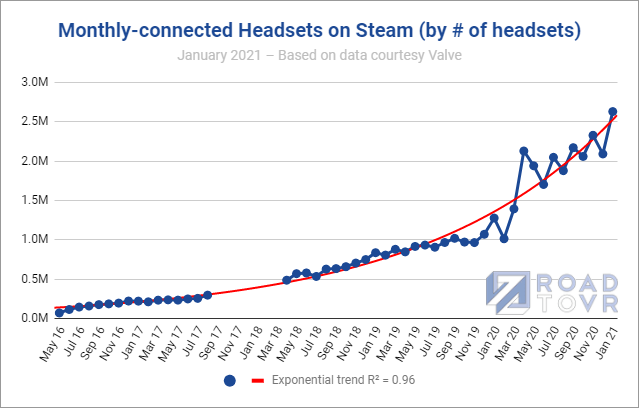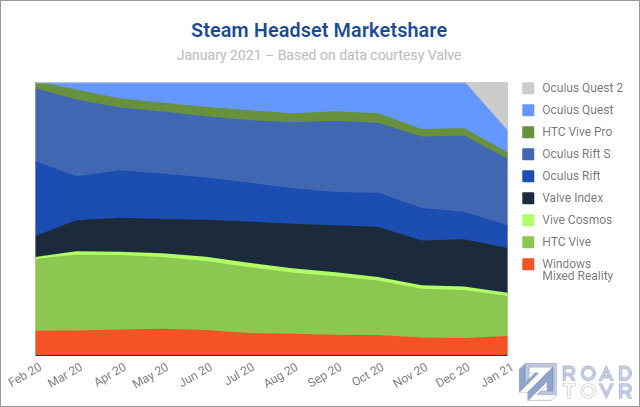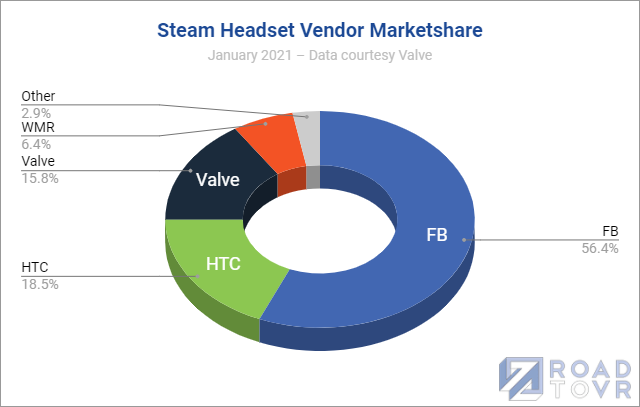Although Quest 2 is a standalone headset, it can also be plugged into a PC to play PC VR games through Oculus PC and Steam. The headset’s holiday success has clearly bled through into the PC VR landscape, as the latest data shows that Quest 2 is now the second most used headset on Steam, with the total number of monthly-connected headsets on the platform reaching a new all-time high of 2.6 million.
Monthly-connected VR Headsets on Steam
Each month Valve collects info from Steam users to determine some baseline statistics about what kind of hardware and software is used by the platform’s population, and to see how things are changing over time, including the use of VR headsets.
The data shared in the survey represents the number of headsets connected to Steam over a given month, so we call the resulting figure ‘monthly-connected headsets’ for clarity; it’s the closest official figure there is to ‘monthly active VR users’ on Steam, with the caveat that it only tells us how many VR headsets were connected, not how many were actually used.
While Valve’s data is a useful way see which headsets are most popular on Steam, the trend of monthly-connected headsets has always been obfuscated because the data is given exclusively as percentages relative to Steam’s population—which itself is an unstated and constantly fluctuating figure.
To demystify the data Road to VR maintains a model, based on the historical survey data along with official data points directly from Valve and Steam, which aims to correct for Steam’s changing population to estimate the actual count—not the percent—of headsets being used on Steam.
Thanks to the holiday surge, monthly-connected headsets on Steam have reached a new all-time high of 2.6 million. This appears to have been partly driven by the holiday success of Quest 2 and the portion of users that are using it as a PC VR headset. This tracks with Facebook’s recent touting of Quest 2 as “one of the hot holiday gifts this year.”
Share of VR Headsets on Steam
Looking past the overall number of monthly-connected headsets on Steam, we see further that Quest 2 has become a major player on the platform, having leapt into the #2 position among the most common headsets on Steam at 17.4%, behind only Rift S at 23.4% (+0.83%).
The jump is meaningful, but not quite as sudden as it might seem. This is the first month that Valve has split Quest 2 into its own category in the data; in the prior months following the launch of Quest 2, it appears that both Quest and Quest 2 were lumped into the same category.
With Quest 2 now getting a dedicated category it looks like Quest lost a lot of share in the last month, but in reality this is due to the reclassification of Quest 2 into its own category. Both headsets likely gained share since the previous month, though Quest 2 clearly saw the bulk of the growth. If lumped together as they were previously, Quest + Quest 2 would have ranked as the most used headset on Steam with a 25% share.
Another interesting bit from the latest data is some growth in Windows Mixed Reality, which gained +0.93% to reach 6.38% of headsets on Steam. That’s a small but notable increase for the category which has been slowly but steadily shrinking for more than a year. The growth is likely driven by the recent launch of HP Reverb G2, the first WMR headset to be released in some time.
Looking above at the graph also reveals another telling trend: the areas of the chart becoming more compressed over time show less dominance by any one headset, meaning that there’s increasingly meaningful choice in headsets among customers.
From a vendor standpoint, however, Facebook is becoming increasingly dominant, with Oculus headsets now holding a combined 56.4% of the share of headsets on Steam.










